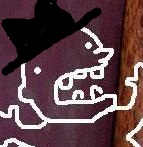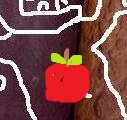Full Disclosure: Haven’t read any of Williams before. Faber poets don’t tend to do well on this blog.
Review: [A pre-review aside: Williams is currently searching for a kidney donor. Going by the campaign’s Facebook page, potential donors have been found. I sincerely wish him and his family all the best of luck.]
I Knew the Bride is an extended examination of loss and mortality, told with Williams’ characteristic whimsical airiness and plain speech. Its occasional lyrics are spread between two long sequences, ‘Now That I’ve Forgotten Brighton’, about the breakup of a relationship and ‘From the Dialysis Ward’, as mentioned above. The book kicks off fairly well, with ‘New Year Poem’, a wryly sad and slightly resigned piece about the increasing difficulty of getting out of bed: ‘The day is difficult to start. / I leave it at the top of a hill / the night before.’ This, as is tradition, is the best written and most deeply felt individual poem in the collection.
By contrast, ‘Now that I’ve Forgotten Brighton’ is a distinctly thin, often adolescent account of a breakup that kind of plays on the logical joke in the title, but is more consistently a fairly mopey response to amorous failure: ‘It should have been okay / but it turned out not to be’, ‘I suppose you’re right and breaking up / would be quite a good thing, / but staying together would be an equally good thing’, ‘I can only look on, while my hand / dials a number it knows by heart […] I will her hand not to pick up’. I imagine the simplistic register is a deliberate decision, but the poems lack sincere or difficult self-questioning, dampening their emotional power. The poem after this sequence, ‘Actaeon’ (the hunter killed by his own hounds in punishment for seeing the goddess Diana bathing), does a fine job of brushing off any remaining sympathy by kicking off with ‘I thought of all my girlfriends / gathered together on a stage’, ‘‘I didn’t know you girls all / knew one another’, I said, / seeing only a tumble of looks and limbs.’ Again, there’s probably some self-parody going on (you’d hope), but it’s clumsy and facile and presents more than it challenges. A similar scene in 8½ performs this exact function far more perceptively. Hot on ‘Actaeon’’s heels is ‘Twenty Yards Behind’, a villanelle with such insights as ‘All those things men find so intense / women take as the most tender nonsense’. One of the rhyme-words is ‘detumescence’.
The title poem, an elegy for the poet’s sister, quite clearly opens some raw and painful wounds, but in execution the piece feels a touch too allusive, a little too fixed in personal anecdote to gain traction as a public gesture; it introduces a number of reminiscences without slowing down to properly engage with them, and the poem peters out. The proceeding individual lyrics are little stories about railway porters, life at public school in the fifties, and an ill-advised fantasy about acquiring organs called ‘The Chinese Stock Exchange’ in which a ‘teenage con-girl in martial arts gear’ and a ‘man in pyjamas’ say ‘You pay me now I come back later’ and ‘Tonight very busy night’ respectively. There’s no excuse for deploying ethnic stereotypes for comic effect, and these pieces are united in their failure to fully explore their lyric conceits. One bright spot is a terrific translation of Cavafy’s ‘Garments’, short enough to quote in full:
In an old trunk or in an ebony chest
I put away the yellow clothes of my childhood,
my favourite yellow clothes.
I put away the blue clothes I wore as a boy,
the blue clothes that boys always wear,
followed by the red clothes of my youth,
the exciting red clothes of a young man.
I put away the red clothes, then I put away
the blue clothes again, more faded this time.
I wear black clothes. I live in a black house.
Sometimes at night I open the ebony chest
and gaze with longing at my beautiful clothes.
The closing section, ‘From the Dialysis Ward’ feels like nothing so much as a missed opportunity. Again, there’s little sense of difficult questions being asked by the poems; many are straightforward reportage, including disdain for a male nurse in ‘A Healthy Interest’, (‘He looks disappointed with me. / My indifference in fear, he says. / I need to take an interest in my case’) and objectification of a female nurse in ‘The Angel of the Needles’: ‘The beauty of the Indian nurse / puts the fear of God in me […] Did she have to take a needling test / like other mortals? / Or did they let her in / for being one of the angels? // I want her to like me’. She’s a medical professional. This is not complicated. ‘Prayer Before Sleeping’ is the most effective poem in the sequence, aiming as it does for a sense of hopelessness, desperation and fear, ‘Slip me some sort of clue / that knows what to do with me / and I promise I’ll be good.’ It’s a moment that stands out for its clear-sightedness.
[Post-review aside: there’s a quote in the back cover of I Knew the Bride from Edna Longley, aka my hero, describing Williams as ‘Possibly the most original poet of his generation.’ Longley’s quote in fact refers to the 1985 collection Writing Home, and reads, ‘Possibly the most original poet of his generation in England.’ Omitting the quote’s full context is petty misinformation, and that sort of thing bugs the life out of me.]
Tl;dr: I Knew the Bride doesn’t deserve its spot on the shortlist by the quality of writing alone. The poems feel rushed and unpolished, and some of the writing’s underlying messages are unexamined and harmful. There are a few moments of real accomplishment, but these are few and far between the book’s formally and thematically scattershot entries.



A timely review. I was just reading some of these poems on LRB online and wondering if I was missing something.
I think it’s the poems that are missing something! Cheers Ingrid, thanks for reading 🙂
What I love about this blog is that we get your unvarnished opinions, free from hype and razzmatazz. Long may it continue.
Many cheers Angela! Support is much appreciated 🙂